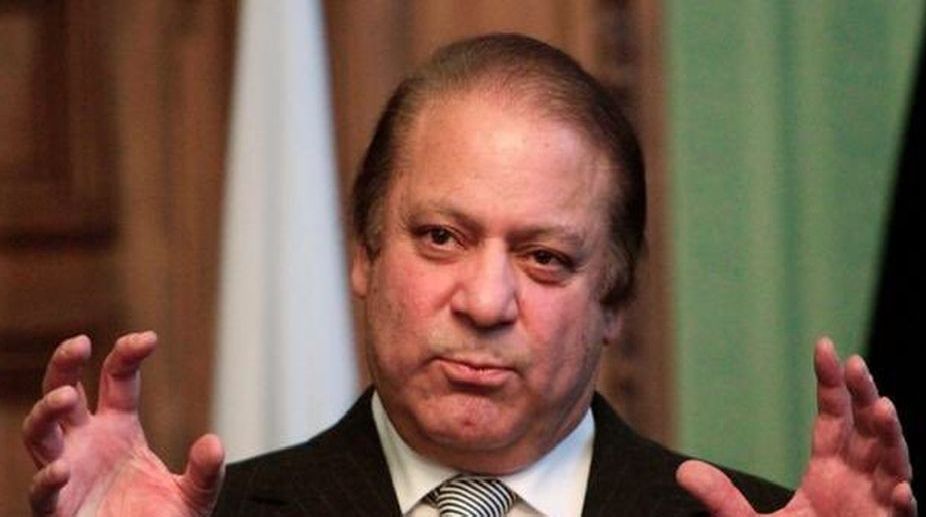What had been simmering for a long while erupted into the open last week when the military, through the DG ISPR’s tweet, publicly rejected a ‘notification’ issued by the Prime Minister’s Office. The letter, which was in fact meant for various ministries to take action and dubbed by the media as a ‘notification’, brought the conflict brewing between the civil and military leadership over the ‘Dawn leaks’ to a head.
Such a blatant gesture of defiance towards the civilian authority has set a new and highly dangerous precedent. The latest confrontation with the generals could not have come at a worse time for a beleaguered prime minister fighting a desperate battle for political survival. The situation has become more serious with the major opposition political parties putting their weight behind the military. While the controversy over the Dawn report may have triggered the latest crisis, there are a number of other factors that have contributed to the current civil-military stand-off. There is an almost complete breakdown of trust between the two branches of state. The latest round of confrontation has also removed any illusions about improving civil-military relations with the change of army guard. This goes to show once again that it is the institution and not just the individual that matters in this tricky relationship.
Advertisement
It has been a long and eventful fortnight for Prime Minister Nawaz Sharif where nothing seems to have gone right for him. First it was the damning Supreme Court ruling in the Panama case, then came the controversy over the mysterious visit of Indian business tycoon Sajjan Jindal, and finally the defiant ISPR tweet throwing down the gauntlet.
It was not just the issue of an Indian family friend calling on the prime minister, but the timing and circumstances of Jindal’s visit that provoked criticism. What added to the controversy was the security establishment’s lingering suspicion regarding Sharif’s ‘soft-pedaling’ on India. Jindal’s tweets censuring the Pakistani military and intelligence agencies came in handy for the opposition to question the patriotism of the prime minister. A section of the media also went full-throttle fuelling the fire.
In the midst of all this, the Prime Minister’s Office notified the termination of the services of the prime minister’s special assistant on foreign affairs Tariq Fatemi and a senior information ministry official as per the recommendation of the investigation commission probing the Dawn report. The order was instantly rejected by the military for being incomplete. However, no substantial reason was given for the rebuttal. What is worse is that it triggered a media war with the commentators and TV anchors fighting it out on behalf of either side. The free-for-all turned the fracas into something uglier.
Interestingly, the opposition political parties jumped into the fray aligning themselves with the army’s position for purely opportunistic political reasons — they wanted to further weaken the Sharif government without realising the longterm ramifications of this for the system. However, this kind of political expediency is not new to Pakistan's political culture. The PML-N too has played the same game in the past.
Surely, the government must share the blame for these heightened tensions. The confusion within the administration was apparent from the statement of the interior minister questioning the authority of the Prime Minister’s Office to issue such an order. He contended that this was the responsibility of his ministry. This speaks volumes for Sharif’s style of governance.
But the main issue is not who was authorised to issue the ‘notification’; the entire approach to the case was problematic. The serious divide between the civilians and the military members of the commission was known. This was the main reason for the long delay in finalising the report, even though it still appears inconclusive. The military leadership seems to have had strong reservations over the findings of the commission and its recommendations.
For the past few months, backchannel efforts were on to resolve the differences. Some compromise was apparently reached whereby Fatemi was to be removed, even though there was no substantive evidence of his being directly or indirectly involved in the so-called leak. But the military seemed to be unhappy with the wording of the ‘notification’ that implied it was just a change of portfolio. Was that such a big deal for the army that it had to issue a public rejection? It surely would have been better had the entire report been made public.
There is certainly some credence to the argument that the entire issue of the ‘leak’ was blown out of proportion. It could have easily been dealt with through some administrative action rather than forming a joint investigation committee. It was apparent from the outset that such a motley team of investigators would not be able to reach a conclusion to the satisfaction of all sides.
For sure, this build-up of the narrative about national security having been breached incensed the army rank and file, bringing the leadership under huge pressure. Not surprisingly, the issue was raised during the visit of the new army chief to various garrisons.
It had become an emotional issue and thus needed more prudent handling. Moreover, it had become the main obstacle in the way of making any effort to improve civil-military relations. The role of the opposition in whipping up differences has also contributed to the heightened tensions. The present political crisis has given space to the military to assert itself more strongly.
This deepening civil-military conflict is dangerous not only for the country that is facing grave external and internal security challenges, but also for the democratic political process. The confrontation will not only harm the present political set-up; it will also have a negative impact on the institution of the armed forces. The responsibility lies with both the civilian and military leaderships to resolve this stand-off before it is too late. This open defiance of constitutional authority must stop.
Dawn/ANN.











